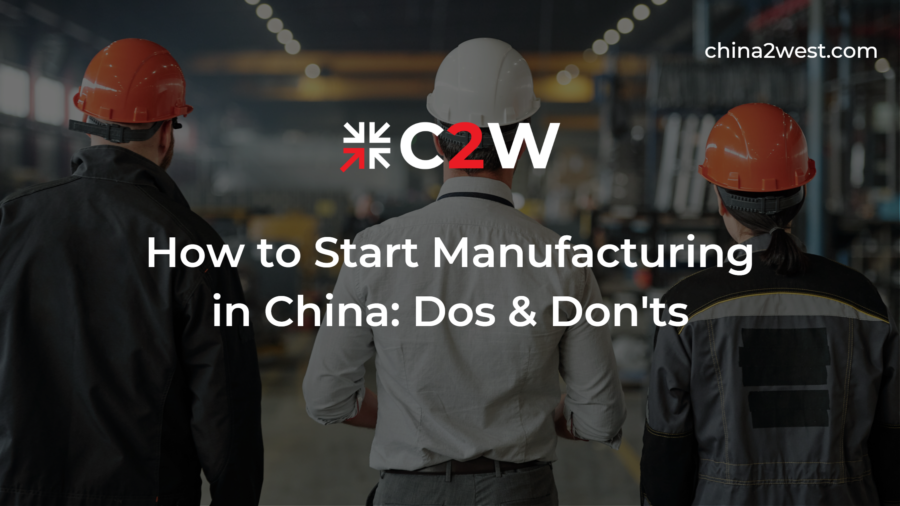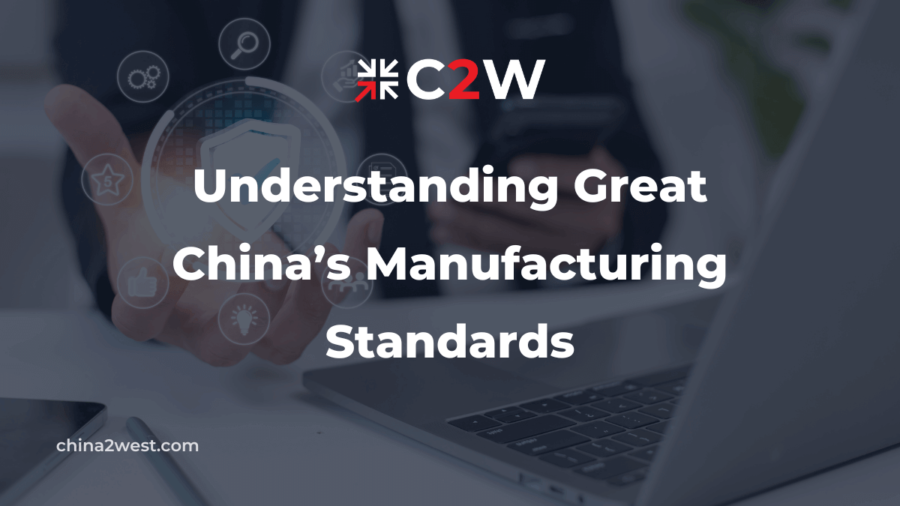When it comes to manufacturing, China has long been a popular destination for companies looking to tap into the country’s vast resources and skilled labor force. With its low labor costs, abundant raw materials, and massive market potential, it’s no wonder that many companies have decided to set up shop in China. However, starting a manufacturing operation in China is not without its challenges. To ensure a successful launch, it’s crucial to understand the dos and don’ts of manufacturing in China.
Dos
Research Your Manufacturing Partner Thoroughly
One of the most important aspects of starting a manufacturing operation in China is researching potential manufacturing partners. This means thoroughly researching potential manufacturers, visiting their facilities, and talking to their references. It’s important to look for a manufacturer that has experience in your industry and a good reputation for quality and reliability. It’s also important to ensure that they have the necessary certifications and licenses to operate. This will help ensure that your manufacturing operation is in good hands and that your products will be of the highest quality.
Navigate Chinese Business Culture
Navigating Chinese business culture is also essential when starting a manufacturing operation in China. Chinese business culture can be quite different from what you’re used to, and it’s important to understand the customs and expectations of your potential partners. Building relationships is key in China, so take the time to get to know your partners and build trust. This will help to ensure that your manufacturing operation runs smoothly and that any issues are quickly and effectively resolved.
Establish QC Measures
Quality control is also a critical aspect of manufacturing in China. It’s important to have a system in place to ensure that your products meet your standards and comply with any applicable regulations. This may include hiring a quality control inspector to visit the factory on a regular basis, implementing a system for testing and inspection, or even establishing a third-party inspection system. By having a robust quality control system in place, you can ensure that your products are of the highest quality and that your customers will be satisfied with their purchase.
Plan for Logistics
Logistics and supply chain management can also be a significant challenge when manufacturing in China. With a vast country like China, it’s essential to have a plan in place for how to get your products from the factory to your customers. This may include working with a freight forwarder or logistics company that specializes in China, or setting up your own logistics and supply chain management system. By having a clear plan in place, you can ensure that your products are delivered on time and in perfect condition.
Protect Your IP & Research Chinese Laws/Regulations
Another important aspect to consider is protecting your intellectual property. China has a reputation for IP violation issues, so it’s important to take steps to protect your designs and other proprietary information. This may include filing for patents and trademarks, or using non-disclosure agreements. By protecting your intellectual property, you can ensure that your designs and ideas remain safe and secure.
It’s also important to be aware of the legal and regulatory environment in China. This includes labor laws, tax laws, import and export regulations, and intellectual property laws. Working with a local lawyer or consultant can help ensure compliance and avoid any potential legal issues. Additionally, it’s important to be prepared for the long-term and have a clear business plan, budget, and strategy for dealing with potential challenges.
It’s also worth noting that in recent years, the Chinese government has been making efforts to make the process of manufacturing and doing business in China more accessible for foreign companies, such as by simplifying regulations and providing various subsidies, tax breaks and other incentives. It is always beneficial for companies to stay updated on the changing policies and take advantage of the resources that are available, such as the British Chamber or the American Chamber of Commerce in China, which can provide valuable information and assistance.
When it comes to starting a manufacturing operation in China, there are several “don’ts” that should be avoided in order to ensure a successful launch.
Don’t Assume the Cheapest Option Is the Best
While labor costs in China are lower than in many other developed countries, it’s important to remember that you get what you pay for. Cheap labor may mean lower quality products, and it’s important to find a balance between cost and quality. It’s important to research potential partners and make sure they have a good reputation for quality and reliability.
Don’t Overlook the Importance of Location
Different regions of China have different strengths and resources. For example, the coastal regions of China are more developed and have better infrastructure, while the inland regions are more resource-rich. Also, being close to the source of raw materials or to major ports for exports can make logistics more efficient and cost-effective. Therefore, it’s important to carefully consider the location of the factory and how it will impact your supply chain, logistics, and overall business operations.
Don’t Ignore the Potential for Currency Fluctuations & Currency Risk
China’s currency, the Renminbi (RMB) is not fully convertible and the Chinese government has been known to intervene in the currency market. Currency fluctuations can have a significant impact on your profits and it’s important to have a plan in place to mitigate currency risk. This may include hedging strategies, diversifying your revenue streams, and working with a currency specialist.
Don’t Rely Solely on a Single Supplier or Manufacturing Partner
Diversifying your supplier base is a good practice to protect your business from potential supply chain disruptions. Relying on one supplier can put your entire operation at risk if the supplier is unable to meet your needs for any reason. Make sure to have a backup plan in place and consider multiple suppliers for your products and raw materials.
Don’t Underestimate the Importance of Environmental Regulations & Sustainability
China has strict environmental regulations and it’s important to comply with them to avoid fines and penalties. Failing to comply with environmental regulations can also damage your reputation and lead to negative consequences for your business. Additionally, as consumers and businesses around the world are becoming more environmentally conscious, it’s important to consider sustainability in your manufacturing operations. This may include implementing green manufacturing practices, using eco-friendly materials and minimizing waste. By incorporating sustainability into your operations, you can not only comply with regulations, but also appeal to environmentally conscious consumers and improve your reputation.
By keeping these “don’ts” in mind, you can take the necessary steps to avoid potential pitfalls and set your manufacturing operation in China up for success.
starting a manufacturing operation in China can be a highly lucrative venture, but it’s important to approach it with caution and a clear understanding of the challenges and opportunities that lie ahead. By being proactive and well-informed, you can navigate the complexities of manufacturing in China and reap the benefits of this dynamic and growing market.
But it’s even better to have an experienced manufacturing partner who knows its way around, just like C2W. 17 years of industry experience in China and over 500 suppliers in partnership have made us fully confident in helping you navigate the manufacturing landscape in China and benefit your business. Talk to us today!


